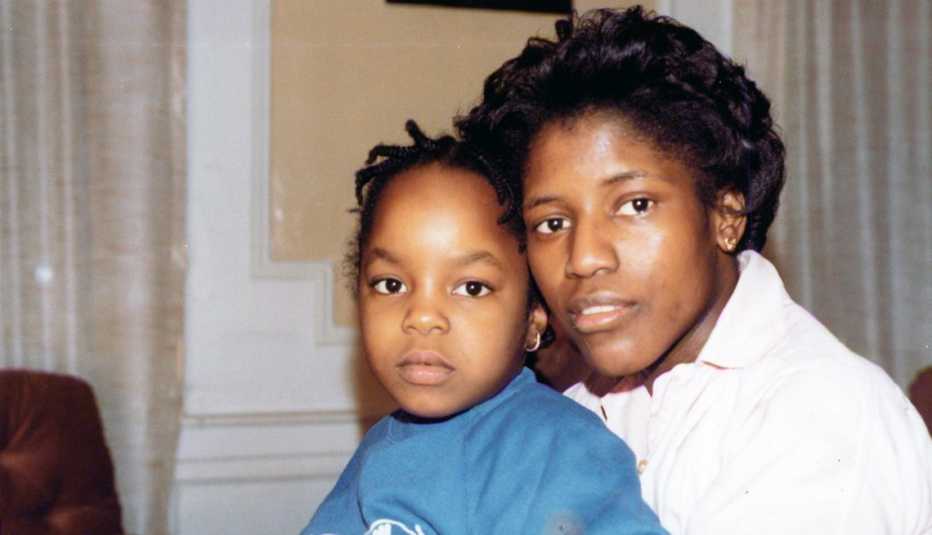AARP Hearing Center


Paula Edgar's mother should have helped her pick out her wedding dress. Her mother should have been at her law school graduation, should be teaching her grandchildren the show tunes she loved. Edgar's mother should be about to celebrate her 59th birthday.
But Joan Donna Griffith was killed on September 11, 2001, when terrorists flew airplanes into each of New York City's World Trade Center towers. Griffith, an assistant vice president and office manager for Fiduciary Trust, was on the 97th floor of the South Tower when the building took a direct hit. Nearly 3,000 people died.
Yet Griffith's life, and especially her death, have had a huge influence over how Edgar's adulthood unfolded.
"So many things in my life were catalyzed by that loss,” Edgar says. “But she laid the foundation and gave me what I needed to do what I had to do."
Survivor of a previous attack
This year, Edgar says she will mark the 20th anniversary of her mother's death, by snuggling in bed and watching those musicals her mother loved so much. The Jamaican-born Griffith was Edgar's stepmother but raised Edgar since she was 2 years old. Griffith was a loving wife, a voracious reader, an excellent cook and a true admirer of musicals. She also believed strongly in helping her community and the people around her.
At home, she had an open-door policy with friends and neighbors. She believed in taking action when she saw something wrong, Edgar says. She also refused to be ruled by fear.
Griffith had survived a previous terrorist attack, when the World Trade Center was bombed in 1993. She told Edgar that as soon as the building reopened, she'd be back at work. “She said, ‘I'm not going to let fear drive me to do things,’ “ Edgar remembers. “That was a lesson that was ingrained in me."


































































More on politics-society
Former NAACP Chair Myrlie Evers-Williams Faces Racial Unrest Head-On
Widow of slain civil rights leader Medgar Evers on how America can reach its promise of freedom, equality
Witnesses to World War II History
Survivors remember some of the conflict's remarkable moments
Why Women's Right to Vote Matters 100 Years Later
Experts see suffrage as a struggle that continues to this day